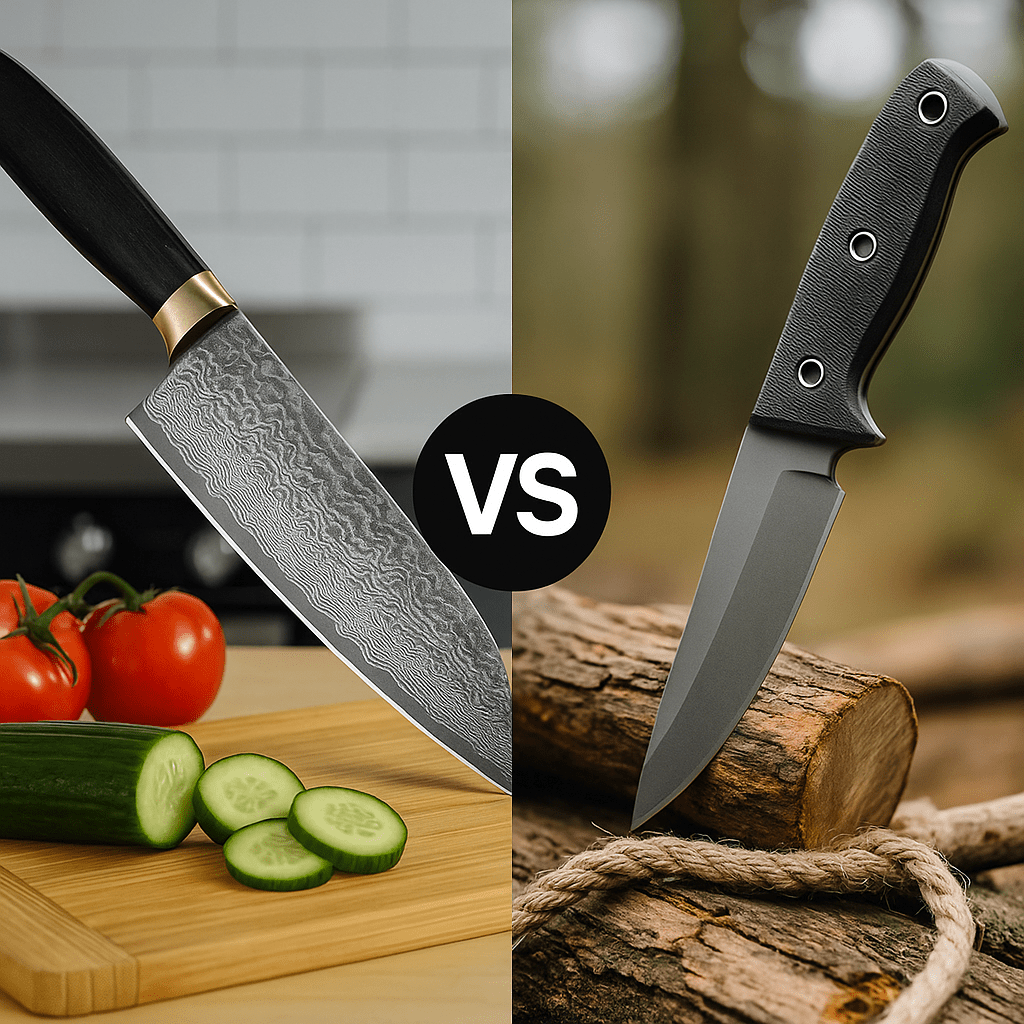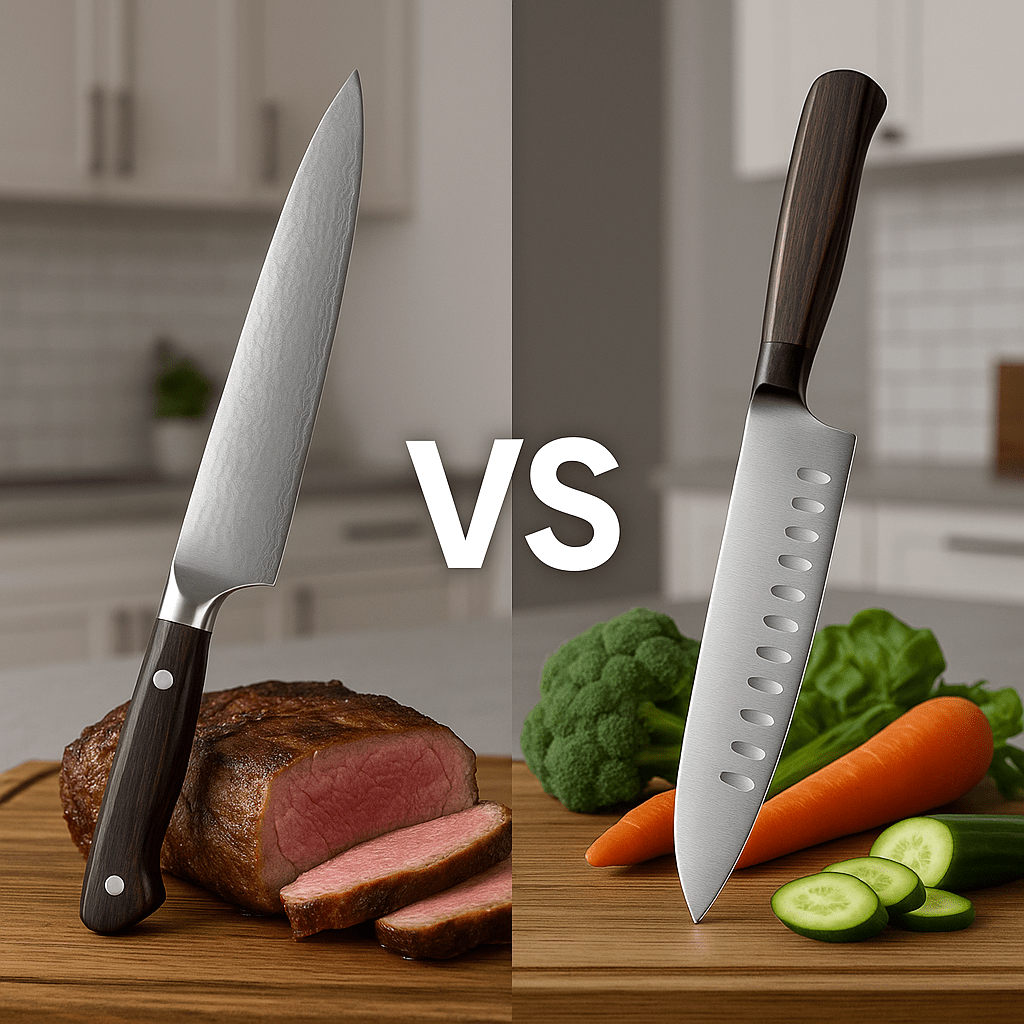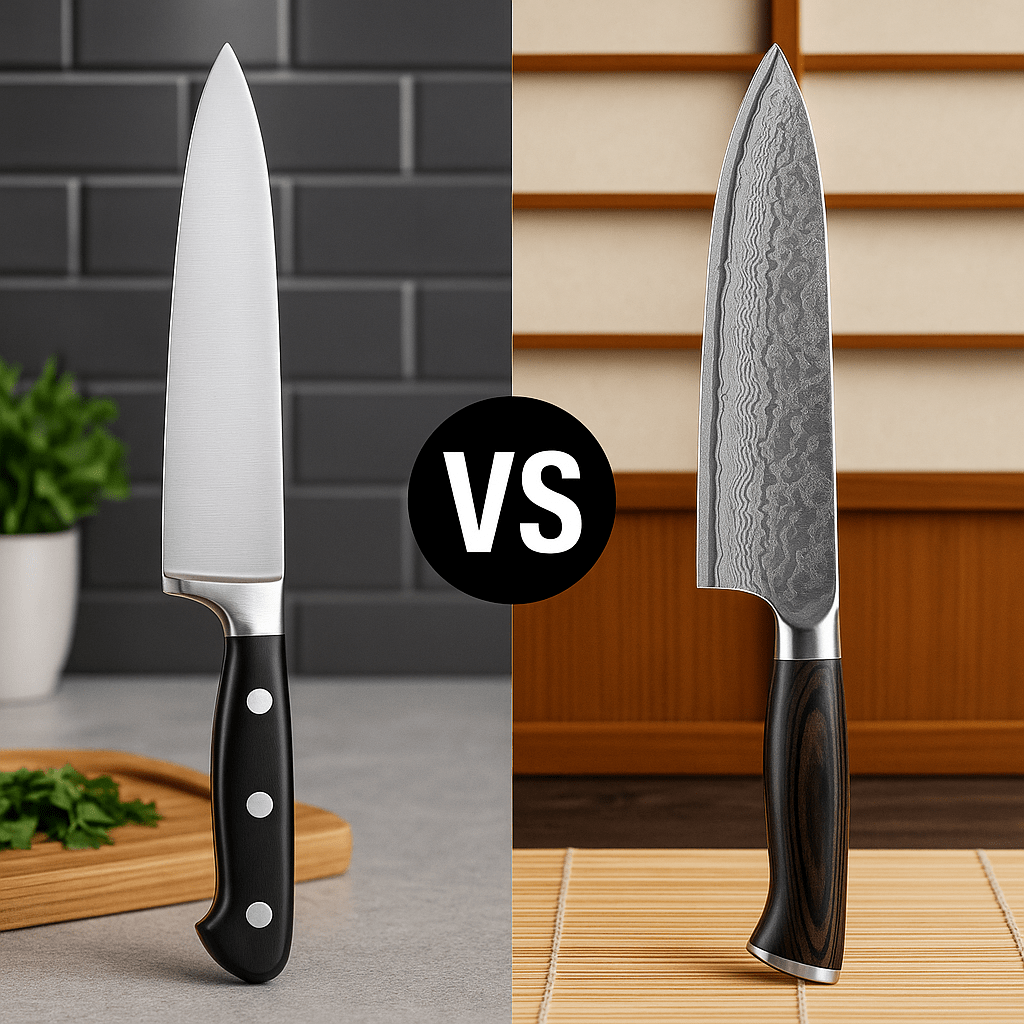
Kitchen Knife vs Outdoor Knife – Can One Replace the Other?
Knives are among humanity’s oldest tools, but not all knives are created equal. A kitchen knife is engineered for food preparation, while an outdoor knife is built for survival, durability, and versatility in the wilderness. Many people wonder: can one replace the other? This article dives deep into the differences, uses, and whether there’s any overlap between these two worlds.
Design Philosophy
Kitchen Knives
Kitchen knives are designed with precision in mind. The blade geometry is thin and sharp, allowing for clean cuts that preserve food texture and flavor. Each knife type—chef, Santoku, Nakiri, boning—has a specialized role, reflecting culinary traditions across cultures.
Outdoor Knives
Outdoor knives, such as hunting knives, bushcraft knives, or survival knives, are designed to handle unpredictable environments. They must split wood, skin game, cut rope, and sometimes even serve as a tool for first aid or shelter building. Durability and toughness outweigh precision in their design.
Blade Construction and Materials
| Feature | Kitchen Knives | Outdoor Knives |
|---|---|---|
| Steel Hardness | HRC 58–62 (harder, sharper edges) | HRC 55–58 (softer, tougher steel) |
| Blade Thickness | Thin (2–3 mm), optimized for slicing | Thick (4–6 mm), optimized for durability |
| Blade Shape | Specialized shapes (Gyuto, Santoku, Nakiri) | Drop-point, clip-point, or straight survival profiles |
| Edge Type | Fine, razor-sharp edge | More robust, often convex or flat grind |
Use Cases
Kitchen Knives
- Chopping vegetables with precision (Santoku, Nakiri).
- Slicing meats cleanly (Gyuto, carving knife).
- Delicate garnishing (paring knife).
Outdoor Knives
- Cutting rope, leather, or canvas.
- Carving wood for shelter or tools.
- Field dressing game or fish.
- General survival tasks: striking firesteel, prying, digging.
Strengths and Weaknesses
Kitchen Knives
- Strengths: Superior sharpness, variety of specialized designs, lightweight for long prep sessions.
- Weaknesses: Fragile under heavy stress, not suitable for wood or bone splitting, prone to chipping if misused.
Outdoor Knives
- Strengths: Toughness, multi-purpose durability, survival functionality.
- Weaknesses: Lack of precision for fine food prep, heavier and less comfortable for long cooking sessions.
Can One Replace the Other?
While an outdoor knife can cut food and a kitchen knife can cut rope, neither truly replaces the other. A kitchen knife’s thin edge will dull or chip quickly in outdoor use. An outdoor knife can handle kitchen prep in emergencies, but it won’t deliver the clean cuts needed for presentation or efficiency. For anyone serious about cooking or outdoor activity, owning both is the best solution.
Professional Insights
Chefs emphasize that kitchen knives are tools of precision. They’re crafted for flavor, texture, and presentation. Outdoor professionals note that survival knives are tools of necessity, built to withstand abuse. Both groups agree: specialization matters.
Practical Recommendations
- If you cook daily: Invest in quality kitchen knives (Gyuto, Santoku, Nakiri).
- If you camp or hunt: Get a reliable outdoor knife with a full tang and sturdy steel.
- If you do both: Keep separate sets—OSERM for kitchen excellence, and a trusted outdoor brand for wilderness.
Maintenance and Care
- Kitchen Knives: Sharpen with whetstones, store safely, wash and dry immediately.
- Outdoor Knives: Sharpen with field sharpeners, oil blades to prevent rust, maintain sheaths for safe carry.
Weekly Deal 🔥
Discover the artistry of OSERM’s Damascus Kitchen Knives, designed for precision and gift-ready presentation. Perfect for home chefs who demand sharpness and style.
You Might Also Like
- Chef Knife vs Cleaver – When to Use Each
- Best Knife for Meat vs Best Knife for Vegetables
- Western vs Asian Knife Styles in Daily Cooking
Tags: kitchen knife vs outdoor knife, chef knife vs survival knife, japanese kitchen knives, OSERM






